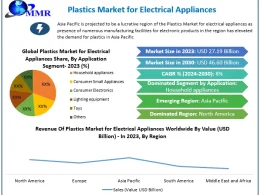ISES Wuxi 2024: The major impact of electric vehicle manufacturers on global semi
The automotive industry is undergoing a significant transformation, driven by the increasing adoption of electric vehicles (EVs). As a result, the demand for semiconductors and other electronic components is skyrocketing. In this article, we will explore the major impact of electric vehicle manufacturers on the global semi industry.
The rise of EVs has created a new paradigm for the automotive industry. With the increasing focus on sustainability and reducing carbon emissions, EVs have become a viable alternative to traditional internal combustion engine vehicles. As a result, EV manufacturers are investing heavily in research and development to improve the performance, range, and affordability of their products.
One of the key drivers of the growth in EV demand is the increasing adoption of electrification in the automotive industry. According to a report by AlixPartners, the global EV market is expected to reach 14.5 million units by 2025, up from 2.5 million units in 2020. This growth is driven by the increasing demand for EVs in China, Europe, and North America.
The growth in EV demand has created a significant impact on the global semi industry. The demand for semiconductors, in particular, has increased significantly, driven by the need for advanced driver-assistance systems (ADAS), infotainment systems, and other electronic components. According to a report by IC Insights, the global semiconductor market is expected to reach $1.2 trillion by 2025, up from $450 billion in 2020.
The impact of EV manufacturers on the global semi industry is not limited to the demand for semiconductors. The growth in EV demand has also created a significant impact on the supply chain, with many semi manufacturers investing heavily in new capacity and technology to meet the growing demand. For example, Taiwan Semiconductor Manufacturing Company (TSMC) has invested heavily in new capacity to meet the growing demand for semiconductors from EV manufacturers.
Another key impact of EV manufacturers on the global semi industry is the increasing focus on sustainability. As the demand for EVs continues to grow, the industry is under increasing pressure to reduce its environmental impact. As a result, many semi manufacturers are investing in new technologies and processes to reduce their carbon footprint. For example, Intel has announced plans to reduce its carbon emissions by 50% by 2025, through the use of renewable energy and other sustainability initiatives.
The growth in EV demand has also created a significant impact on the global semi industry in terms of innovation. The need for advanced electronic components has driven innovation in the industry, with many semi manufacturers investing in new technologies and processes to improve the performance and efficiency of their products. For example, Samsung has developed a new type of semiconductor that is designed specifically for EVs, with improved performance and efficiency.
Finally, the growth in EV demand has created a significant impact on the global semi industry in terms of competition. The increasing demand for semiconductors has created a highly competitive market, with many semi manufacturers competing for market share. As a result, the industry is under increasing pressure to reduce costs and improve efficiency, while also investing in new technologies and processes to meet the growing demand.
Overall, the growth in EV demand has created a significant impact on the global semi industry, driving innovation, competition, and sustainability. As the demand for EVs continues to grow, the industry is under increasing pressure to meet the growing demand for semiconductors and other electronic components. By investing in new technologies and processes, and by reducing costs and improving efficiency, the industry can meet the growing demand and continue to drive innovation and growth.
The impact of EV manufacturers on the global semi industry is a complex and multifaceted issue, with many different factors at play. However, one thing is clear: the growth in EV demand is driving innovation, competition, and sustainability in the industry, and will continue to do so in the years to come.
Conclusion
As the demand for EVs continues to grow, the global semi industry is under increasing pressure to meet the growing demand for semiconductors and other electronic components. By investing in new technologies and processes, and by reducing costs and improving efficiency, the industry can meet the growing demand and continue to drive innovation and growth. The impact of EV manufacturers on the global semi industry is a complex and multifaceted issue, with many different factors at play. However, one thing is clear: the growth in EV demand is driving innovation, competition, and sustainability in the industry, and will continue to do so in the years to come.







